March 29th, 2012 § Comments Off on Mark Brunke § permalink
On the theme of David Lynch
David Lynch: An Oral History of Las Vegas
“The only true part of this is that when I was fourteen, my mother put me on a Greyhound Bus to get me out of Las Vegas.
We were never meant to live in Ontario. How does driftwood end up anywhere? It all tastes the same, unless you particularly like the Irish Sea. Our mother’s had escaped into the Wasteland between the Clean Cities. There was never any muscle, just thin fibers. When you pressed them, there was little meat on the bones. They had those dry famine teeth you get in the high desert in February.
The first thing that hit you was the constant temperature and humidity. It was solid, unchanging. The landing was soft, but you had to keep moving. Eventually, if you moved steady enough and far enough, you hit solid ground.
The night before I left, we watched Eraserhead. She gave me her copies of On The Road and The Soft Machine. I was on my way. My last memory, the last memory I ever want, is sitting alone in the old bus station off Fremont Street, watching this old man with his arm in a sling playing the slots.
We’d take them when they were near their last breath to the Garbage Waters. The radio station constantly replayed broadcasts from the nervous room where children sent their lost teeth. The waves rolled in and out with the thick litter discarded from the Clean Cities.
As we got mother closer, the gases would begin to make your head float. We never went further. You’d see her eyes becoming translucent; she’d begin talking to the sky of heads out beyond the sea. She’d lie down and the waves gradually would roll her back into the surf. She began to talk, but by then her voice was either drowned out by the sound or becoming one with it, it was too hard to tell.
William S. Burroughs came up to me outside of a bathroom in a donut shop in Barstow. He had his dick in his hand, well, that’s a presumption really, who knows what it was; you could see the old grey wrinkles in his arm skin and imagine how his bony artistic fingers felt; for all I know it was a collapsing beetle. The black dirt covered him. He asked me what kind of writer I was and I said Neither Fiction. We didn’t talk about it, his exposure. Those were different times, you just toughed it out, got back on the bus, and hoped to fucking hell you didn’t have to sit next to an asshole.
She lay back upon a folded blue blanket, looking at the top of the tree line, at the darkening horizon of the East. In front of her she could see the little mirror in the tiny trailer kitchen, reflecting the still cold blue setting to the West.
The biggest problem was I kept stealing comic books from the 7-Eleven off of Charleston and 8th. They always had the same story. Godzilla, looking in a mirror. She set her eyes upon the reflection of sunset as her heartbeat slowed to a close. She tried to be at peace, but there were the tethers, her children, still in the woods. She remembered taking them on the train, and letting them go on the bus.
The old girls would always freeze at the edge of the horizon. You imagined them living somewhere, expanding their skin across the black and white memory, reading the scrawl and snippets they etched with their bodies into the tundra.
They would drift in and out of the Earth, their mouths barely above the ground. They were cresting when the driftwood came across the flat beach. In the earth black sand, you felt the holes breathe with every exhale of the methane clams, their feet pulling ever closer to the sea.
She turned like a corkscrew, her left leg lifted into a high thrust, spinning forward. Her left foot planted on the edge of the dirt mound, pointing straight at the batter’s head. The energy in her body projected through her, to the end of her extended right arm as it sailed around her midsection, fully extended and parallel with the flat earth. In between two heartbeats she snapped her wrist in perfect rhythm, exploding from her body, the baseball left her hand, appearing to rise as it sailed by the batter’s chest before he could blink. A perfect game.
We’d crawl to the other side of the old gravel pile, roll over and sit and watch the orange sky fade; wait for the train to make that evening sound of strawberries drowning. The winter sun was a small sliver, emerging through lights from the violet shades of sky.
I kept thinking about Bill. I had noticed sores from an ingrown hair were getting infected on his forearm. I imagined pressing the rough edges of a bitten fingernail into it, folding that skin back. Seeing bone, talking like a mechanic.
The mothers would raise us as their minds fractured. We would watch them disappear into the Pain. We were okay with the air, but you could see it turning their eyes. There was something about being old enough to gestate. The only cure was finding jars of discarded Famine. One jar and they could make it another year. As you poured it into them, you’d see their pupils turn black, watch as the thinness between their bones and skin inflated with the color of glowing eosin.
They would hold us in-between the train cars as they descended into the psychedelic edges of the Mess. Then, when the train slowed so the Disposal Cars could turn their load sideways and disperse it into the remnants of the old Central Valley, we jumped. That air…that was the last moment you felt the air move.
I’ll never forget your funeral, the color of your made up face. I know it was the makeup, but it’s like your body shifted into it. When we die, we get that grey ash from the cave walls all over us, it’s like yeast or vinegar flies, it’s always there waiting to grow. It’s like you were back in France, ten thousand ago, being eaten by life. Except your cave was a basement in Las Vegas.”
Author Biography
Mark Brunke lives and works in the Pacific Northwest.
March 29th, 2012 § Comments Off on Jesse Bradley § permalink
Fiction on the theme of Secret Life
Tom Hightower gripped the wheel of his pearl colored Range Rover. The rain turned the road into a shallow, raging river. Mary Hightower peered through the windshield, looking for the exit to her mother’s house on the highway. Timmy Hightower looked through his pocket notebook, trying to piece together the clues regarding the case Marie Swanson hired him for to find out who would forge a love letter in her handwriting to Carlos Francisco, Parker Lewis Middle School’s token pariah.
“Mary, do you see the exit yet?” Tom sighed. The sweat slowly created wet gloves around his hands.
“No, I don’t Tom. Why don’t we just pull over and sit a bit until the rain stops.”
“We’re running late as is, baby. There’s no need…”
The burst of the Range Rover’s right front and rear tire interrupted Tom’s sentence. Tom furiously turned the wheel as the Range Rover spun out before a Mack truck tapped it just enough for it to flip and roll until it stopped, wheels spinning in the air. The horn cried like a dirge as a figure in a raincoat walked over to the ruined Range Rover.
“Hhheeellp…hellllp ssusss.” Tom’s broken ribs fractured his plea. The figure walked to the back seat, crouched to look. The seatbelt kept Timmy in his seat, the blood trickling from his forehead onto the roof, sneaking over to his New York Mets hat. The figure picked something shiny out of the back right tire before walking back and picked something shiny out of the front tire. The figure crouched down, looked into Tom’s desperate gray eyes before covering his mouth. Tom’s arms wanted to move, slap the figure’s wrist. Tom’s eyes fluttered, his body slacked. The figure opened the raincoat slightly and placed the knives back into the black vest that kept all of his other throwing knives.
“The vessel…is ready.” The figure said to the rain.
“Good.” The rain hissed back. “You have done well.”
“Why them?”
“You’ll understand, eventually. Patience, my servant, patience. Our work is just beginning.”_______________
“This is madness, you know, madness. I get it, you invented the sun, and animals, and man, and a younger version of yourself and then had your younger version killed and resurrected, but why this? Why are you going to do this to him?” Peter asked the steps near the throne.
“Peter, you know better to question my plans, don’t you?” The words tightened around the gatekeeper’s throat. Peter nodded and his breathing sounded normal again.
“Haven’t you done enough to him?”
“He doesn’t understand, doesn’t see the full spectrum of human suffering. He died once to save everyone from total destruction. Now, he must decide if his sacrifice was worth it. If I actually sent him back as himself to that world, the entire population would go insane. Kirk Cameron would never shut up. I warned him that if he kept helping rappers and actors and football players win things, I would have to do something extreme. How much more time do we have access to the vessel, Peter?”
“A few more hours. Will that be enough time?”
“I invented time, or have you forgotten?”
Author Biography
J. Bradley is the author of the upcoming novella Bodies Made of Smoke (HOUSEFIRE Publishing). He is the Falconer of Fiction at NAP and lives at iheartfailure.net.
March 28th, 2012 § Comments Off on David Foote § permalink
Fiction for the theme Secret Life
the sex dreams of Nuns are perfect
I think the sex dreams of Nuns must be perfect. They are unpolluted by experience. Their love to god is not confused by commands to love and obey men who do nothing but hurt them either . I came to Shanghai because I support my husband (I made a promise before god that I would). Yet still he fucks his little bimbo Cinese and does not think one thought for me. I found her picture on his phone spread open like a huang pu mussel and even then he denies it.
“I don’t know who that is,” he says and turns away. I think he doesn’t even see me anymore. Sometimes I have to order things for delivery just to feel like I exist. The Chinese delivery boys, with their winter coats and cobwebbed lips, see only whiteness but at least they see something.
My name is Maria Castita, I am twenty-six and I have had the same sex dream every night for two years.
It always begins the same, my dream. I am in my bedroom, not the one I have now, or at our old apartment back in Italy, but the narrow loft above my fathers panneteria on the Via di Sant’Agata dei Goti. This is the same room I shared with my older sister for the whole of our growing up. The same bed I slept in for my whole life until then, Isa’s feet on my pillow and my feet on her pillow, like tinned sardines. There is a quilt on the bed in my dream, one which I still have and take everywhere. Even when my husband said we were coming to China I brought it, rolled up tight and tied to my suitcase with twine the colour of bruised lemon rind. It is a simple thing of red and white checks my quilt, but, as old as it is, the reds are still very red, the whites are still white and in my dream I lie naked across it. I am sixteen in my dream, still a year until I will be married, six months before I must meet my husband to be, and it is summer. My sister is elsewhere. Sweat slicks the skin of my neck and stomach. It trickles down between my breasts and to the place where my legs join, a place I have no proper name for. Just the words of my childhood, and of the street, to call it by and I do not like to use either. My mother taught us to call it patatina, the little potato. My hand pinches gently to the eye of my “little potato” and the pleasure which comes after, sent spuming ever outwards only from that small tremor, makes a lie of this ugly, detested and dusty word. Still kneading, I hear the clunk of the oven doors opening below, and pull the smell of fresh bread about myself like a veil.
I know the other words for this place, the rude ones I would never dare to say out loud, from the girls at school and from Matteo, my father’s apprentice, who I think I might be in love with. I chant the words to myself over and over again under my breath – “Fessa, Figa, Fregna, Brogna, Topa” -and I touch myself and think of Matteo. We haven’t kissed yet and never will outside of dreams, but his room is next to mine and at night he talks to Isa and me through the wall, about girls he has had and what he did or wanted to do. I imagine myself as one of those girls, a little puttana lifting my skirt in the alley behind the girls school so he can slip it inside me. Just before I come I hear a noise on the landing outside my door, a small animal noise. I look over and see the door has fallen open and he is watching me, his pale green eyes slits. Some nights I wake myself there and pray, and prayer is enough to relieve me of this burden of lust. Some nights Matteo comes through the door, and closes it, to stare at me with those hard green eyes, and to touch and pinch my flesh with his soft floury hands.
Prayer is no good to me when this happens.
Instead I am rudely woken, shocked from fresh sins, and told to remember that the bread man will be here before seven. A moan escapes my lips. My husband buttons up his heavy woollen coat, “I left the money on the counter,” he says, looking down at his cellphone and not at me.
It is cold in the spare bedroom of our apartment. I only come here to watch my husband leave in the morning and to wait for deliverymen to arrive. Standing on the bed in this room, and cast in the dappled light of the little round window above it, I can see down into the courtyard of our compound. I see the open gate and the bǎo’ān in his booth. He has his gloves hung across his neck despite the cold, and is eating bǐng with thick fingered hands. Over the wall the bare limbs of the plantane trees along Ānfú Lù wave to me.
Then I see him. He pulls up outside the gate on his dusty pink scooter with the green delivery box on the back, puts the kick-stand down and takes off his helmet. Under the red and white checked quilt bunched around my shoulders I am as bare as a baby bird. I jump down and butterflies fly from my stomach, not in guilt but anticipation. God and my husband can go fuck themselves.
I am standing by the door when he knocks and open it immediately, the quilt puddling at my ankles, goose-flesh marching across my torso in the rush of winter air. The delivery boy starts and thrusts his bag of bread at me reflexively. As croissants and cinnamon swirls are crushed and torn between our bodies the smell of them makes the butterflies settle ever lower and start to burn.
“Duìbùqǐ,” he says before I kiss him and “nǐ de yǎnjīng shì lǜ de” across the pillows after we are done.
Author Biography
David Foote is a writer, theatre director and cultural anthropologist from New Zealand, currently residing in Shanghai. His works for the stage have been called “gutsy, intelligent and intriguing” (Hannah Smith 18-03-2010, Salient) and his characters “Wonderful… with all the malevolence of any nineteenth century children’s story.” (Gail Pittaway 20-09-2003, The Waikato Times). He is currently engaged in field research for his Phd, into the Western expatriate community in Shanghai.
March 28th, 2012 § Comments Off on Ryder Collins § permalink
Poetry on the theme of Razor Dance
sharks infest these waters & no one believes
me when I tell them this bar once was hip. it was
hopping. there were peeps all over & you had to push
your way through crowds to get a pitcher of Pabst or Riverwest
Stein. well, not you. you didn’t have to push your way through
cos you got the corner seat right near the women’s bathroom &
you probably planned it all out. to sit near the women’s bathroom cos
you were randy & an ex-
Marine, & later, much later, after we’d fucked, you told me, I want
salt-peter. you wanted to do something about your cock & your needs
or you wanted me to think you wanted to do something about your cock
& its needs. & it all made sense even later, much later, after I’d gone to DC
& back for a feminist rally & all the way on the bus there and back even
I could only think
of you & your cock & my needs.
but that’s not what made it made sense… the bar’s no longer
hip & I go back there every now and then & they remember me there,
the bartenders. the old men. they welcome me & my needs. they want my
needs. they have needs themselves but mine still consume them & mine still
consume me
you know nothing of this, ex-Marine. you are married. you are divorced. you are
re-married. you have kids. you have a gut. you have no guts. your inner resources
are your own & you no longer need salt-peter.
it’s a shame cos I could still fuck for days, & I remember our wobbly legs all
cartilage pure cartilage after we came up for air. after we ate each other
up & the blood &
the blood & the blood & the blood
Author Biography
Ryder Collins is the mama from the dirty South. She’s gots a novel called Homegirl! Other work can be found online, and her blog is here.
March 28th, 2012 § Comments Off on Ginger Bruner § permalink
Photography on the theme of Las Vegas
please click on images for viewing at higher resolution
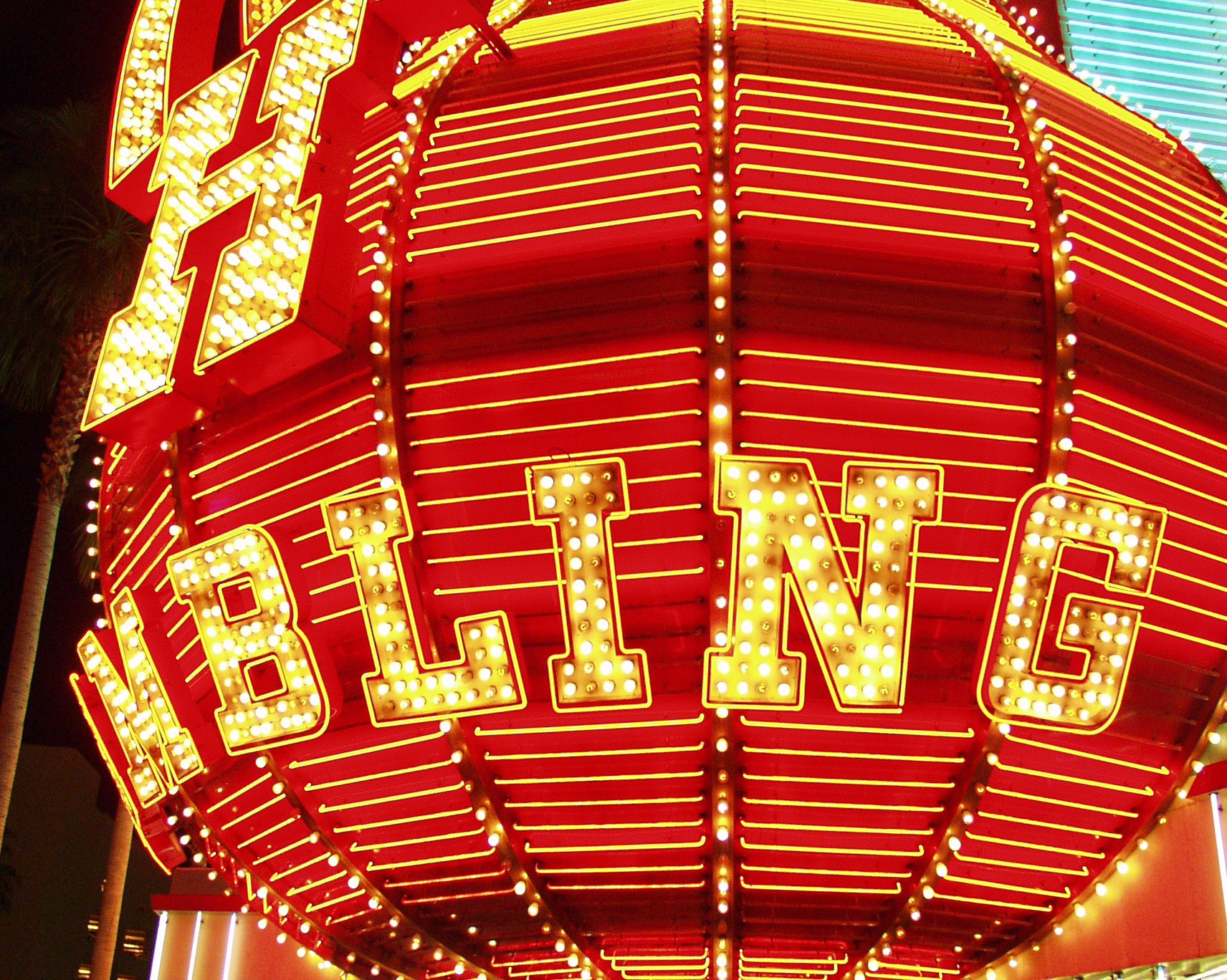
Ginger Bruner - Binon's

Ginger Bruner - Las Vegas Neon Cocktails
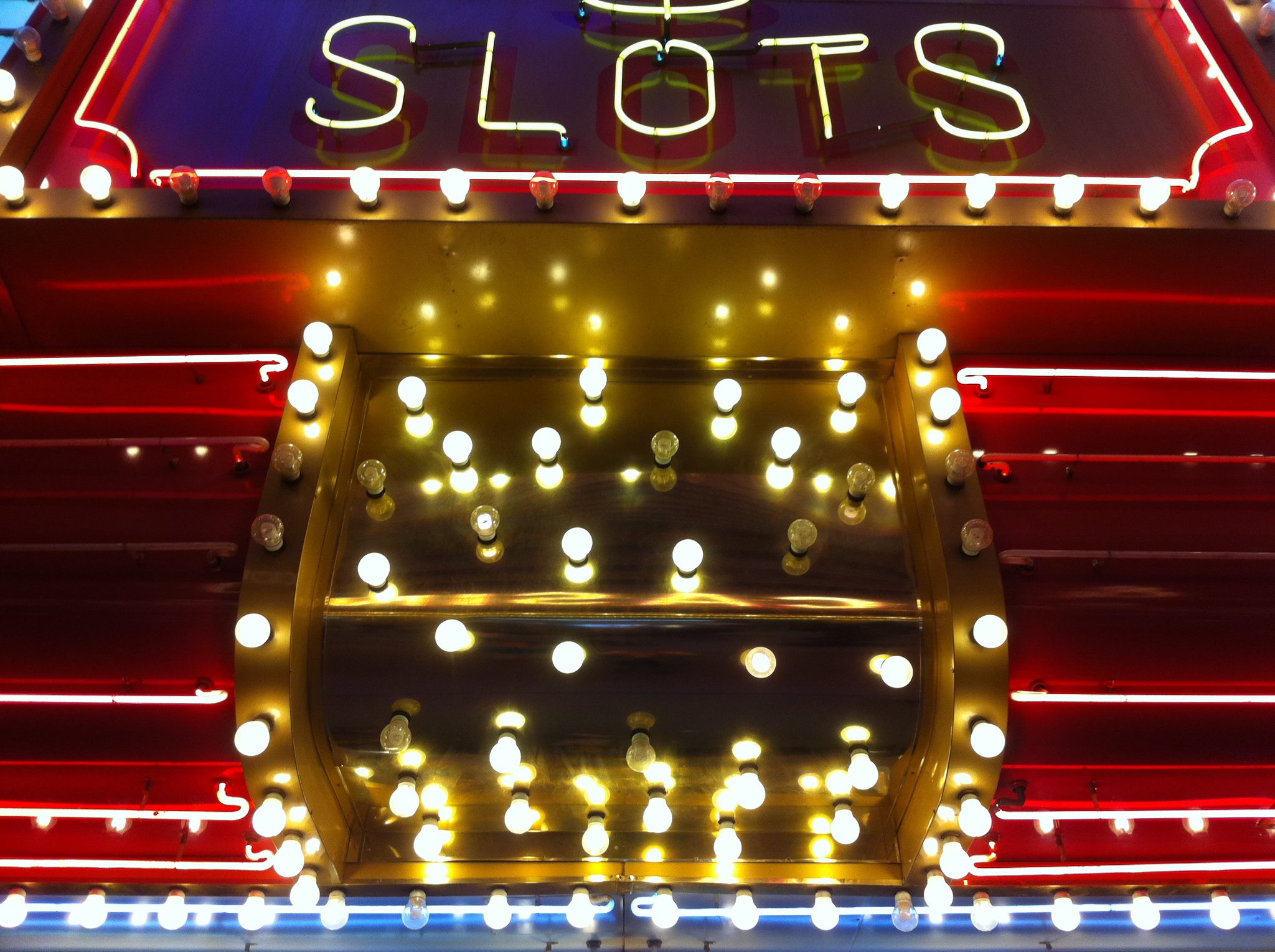
Ginger Bruner - Slots
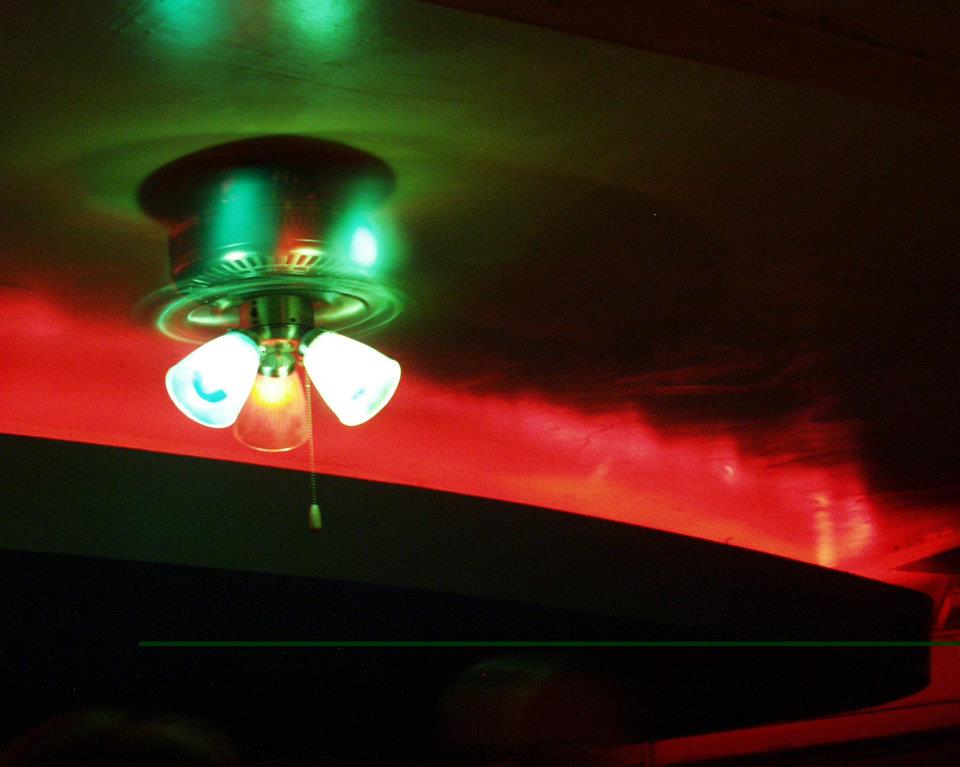
Ginger Bruner - Algiers
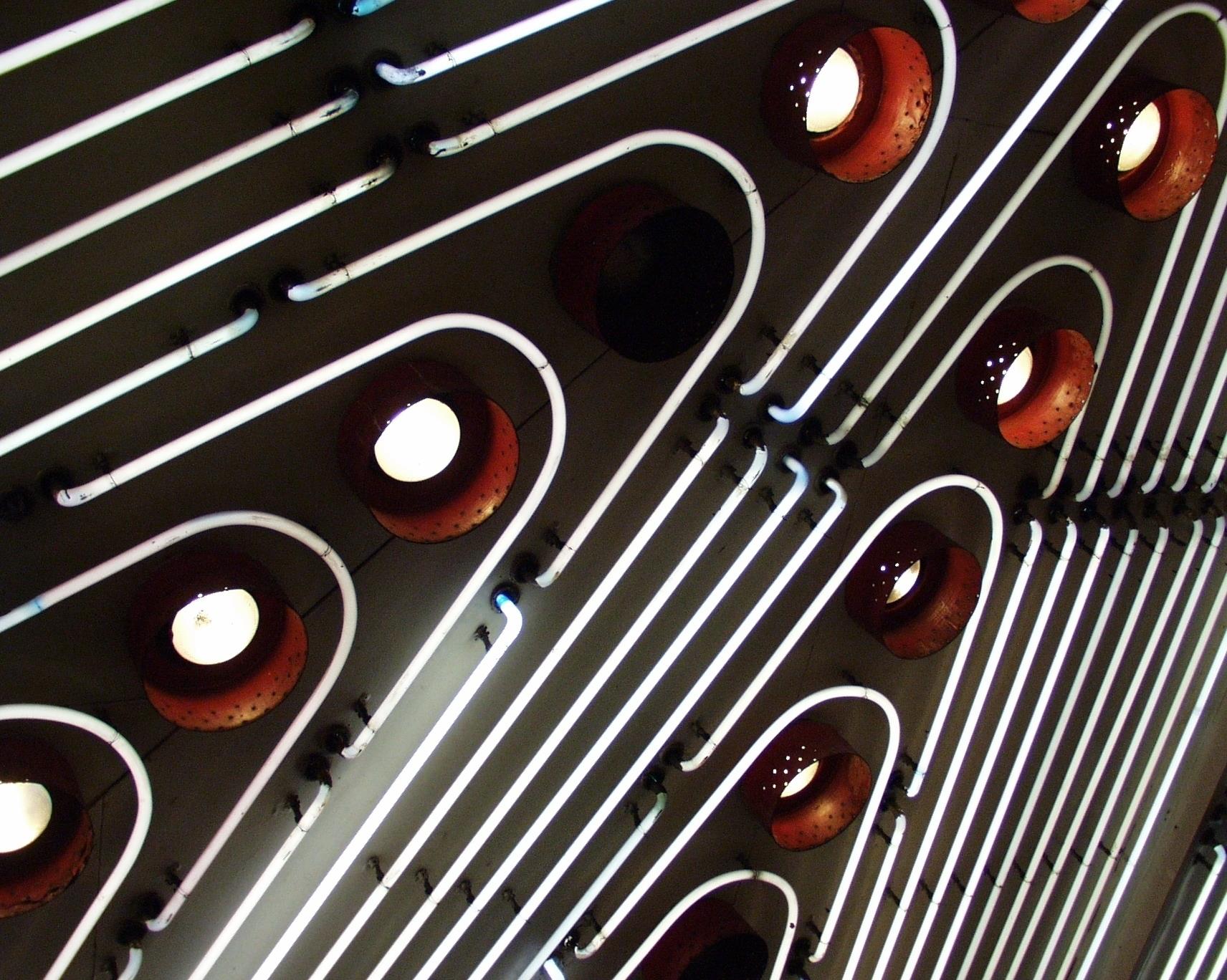
- Ginger Bruner - Las Vegas Neon
Artist Biography
Ginger Bruner, a Las Vegas native, has been described as a musician/artist/cultural animator and credits her BA in Tuba performance as the reason for her many varied careers. Professionally, Ginger is a photographer in fine art, commercial art and graphics. She is also a writer, radio and music producer and engineer, and a musician with several popular bands, most notably, Killian’s Angels. After 20+ years in public radio, many recognize her voice as the “Voice of Public Radio”. In August of 2006 she was inducted into the Nevada Broadcasters Hall of Fame. Recent projects include being the inaugural photographer for “Our Las Vegas – at Night”, a public art project utilizing smartphones and new technology for the City of Las Vegas Public Art Commission.
March 28th, 2012 § Comments Off on Scott Thomas – Featured Artist – Photography § permalink
Photography on the Theme of Democracy
Editor’s note: These photos were solicited from pilot Scott Thomas by editor DRG after they met in Oregon. They depict some of his experiences over the past year as a bush pilot in Mongolia, except for the first image, which was taken in Moscow. Please click the images to view at higher resolution. Read more about Scott and his work below the images, in his bio.)
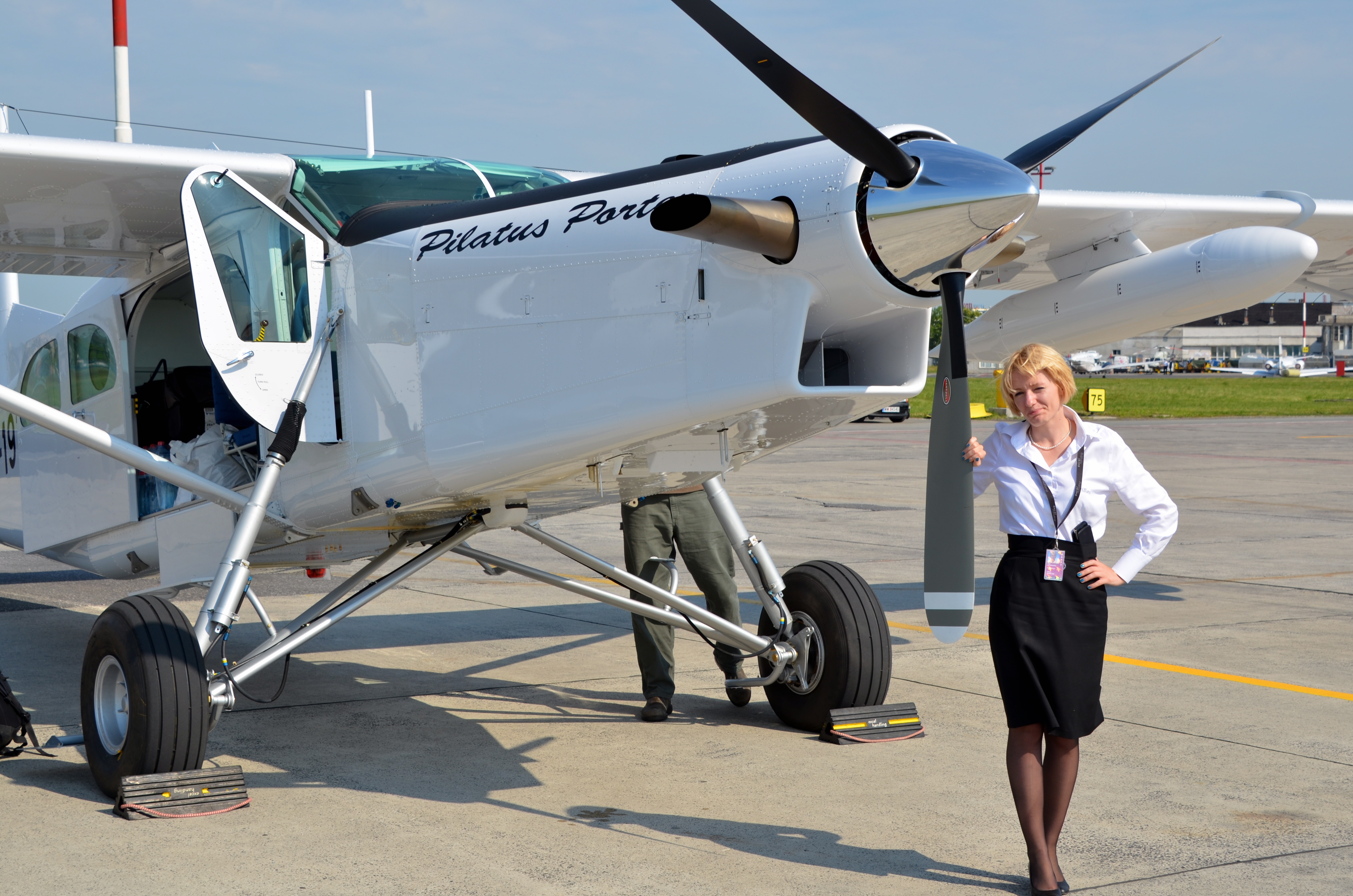
A Russian flight attendant admiring Scott's plane on a stopover in Moscow en route from Switzerland to Mongolia.
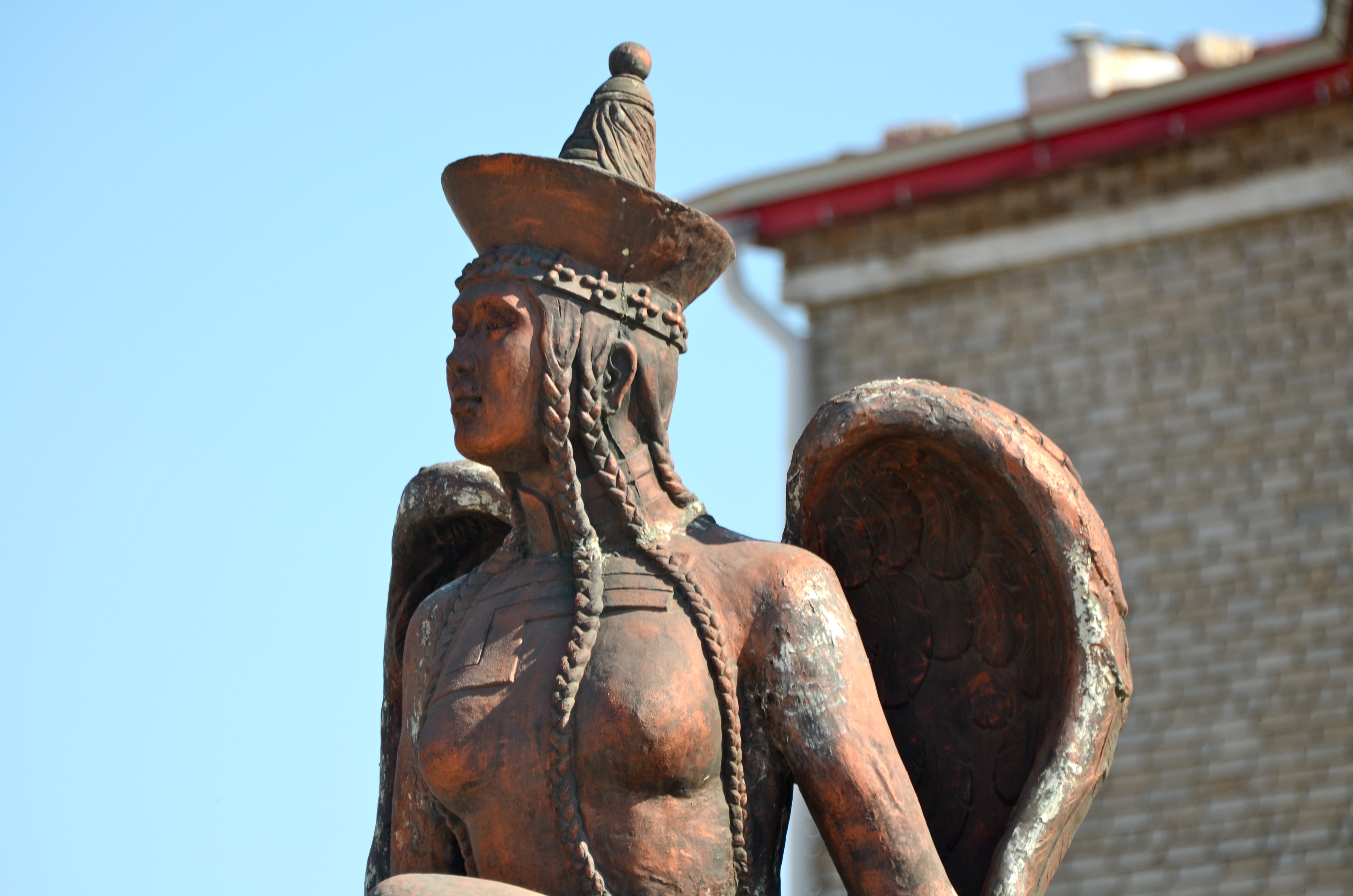
Scott Thomas - Mongolia
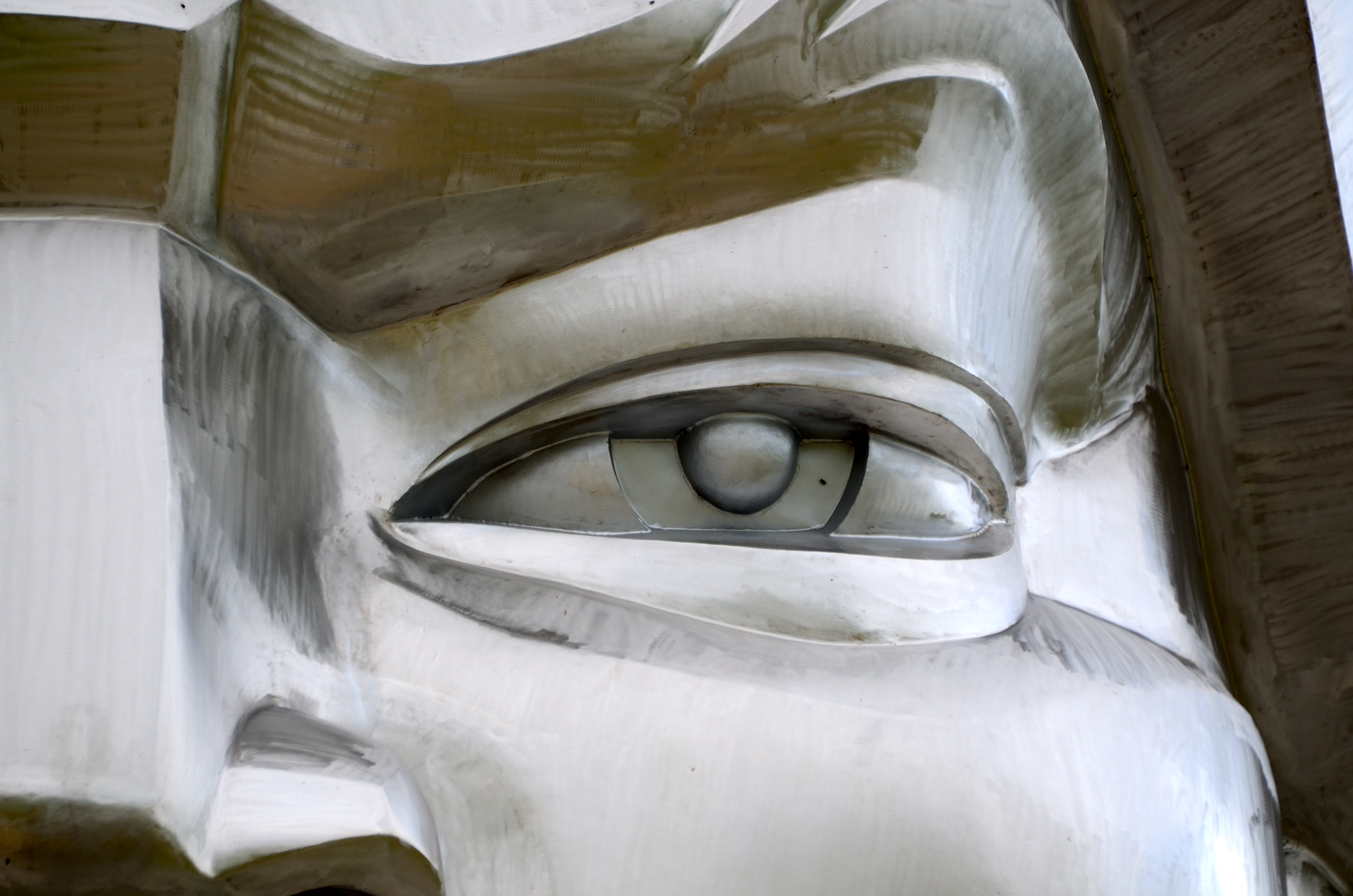
Scott Thomas - Detail of 130 foot (40 meter) high statue of Genghis Khan, Mongolia

Scott Thomas - Nomads in the City, Mongolia
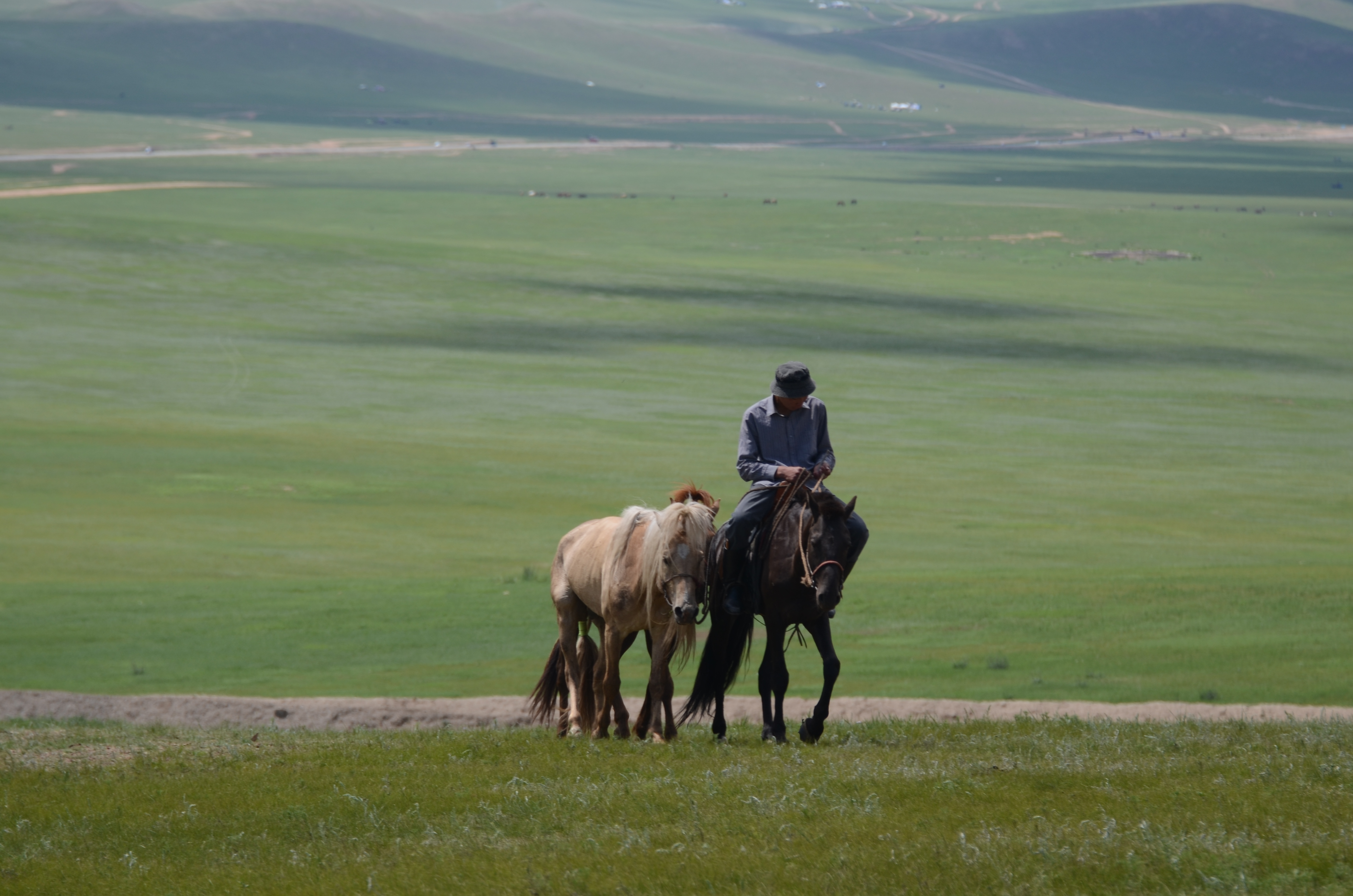
Scott Thomas, Mongolia
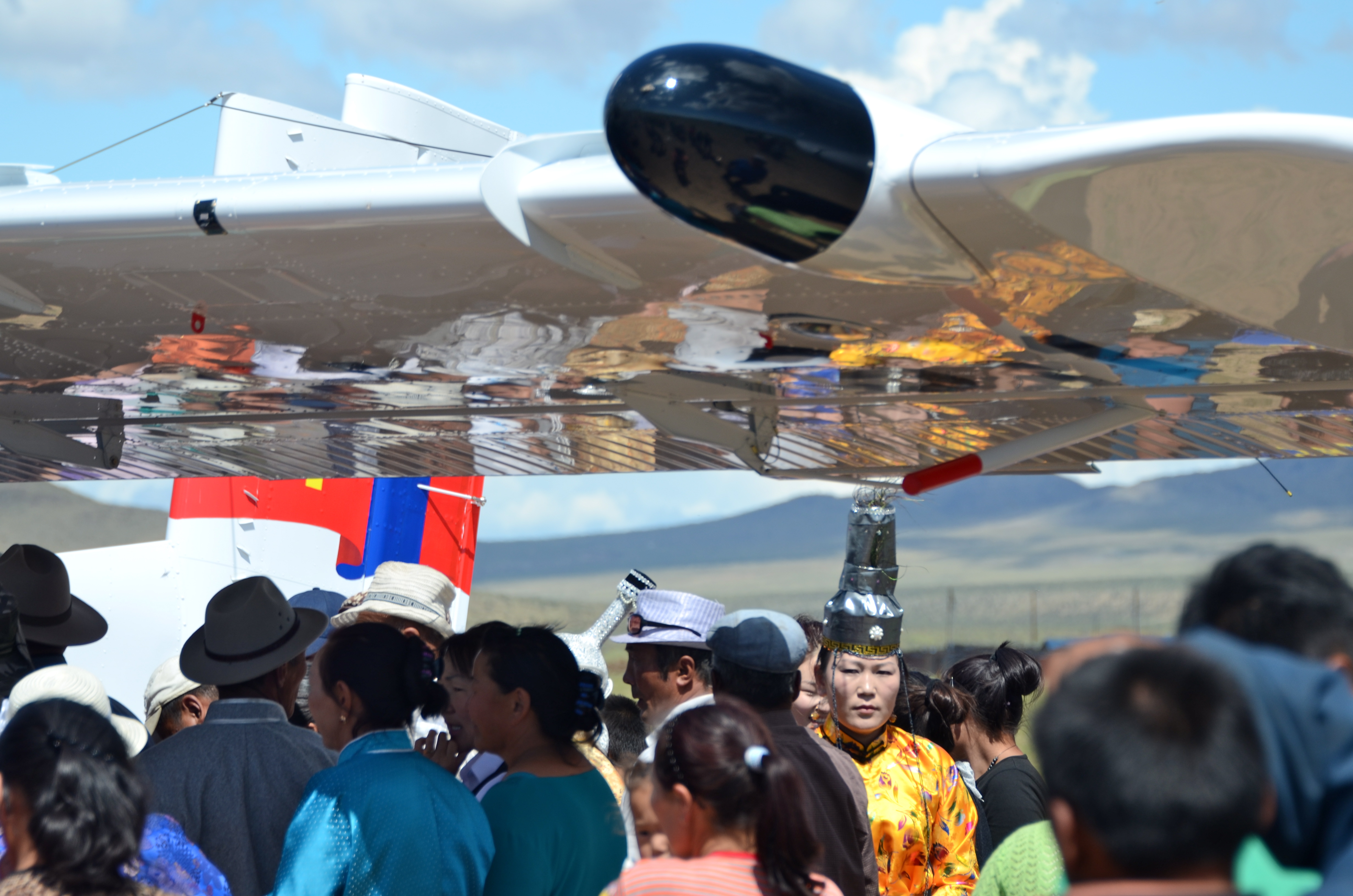
Scott Thomas - A Welcome Ceremony for Visitors Brought to the Countryside by Thomas Air, Mongolia

Scott Thomas - Welcome Ceremony, Mongolia
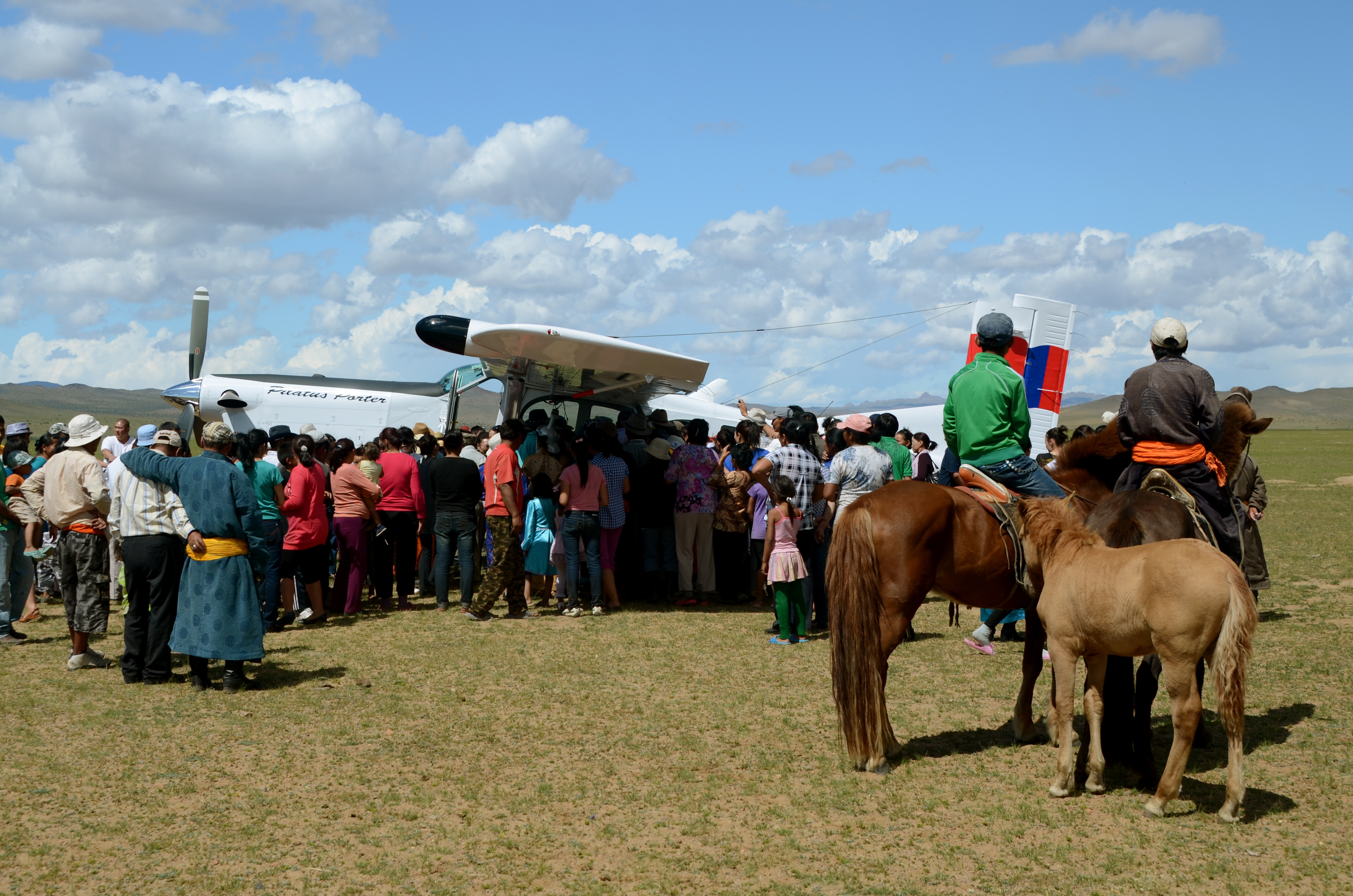
- Scott Thomas - Nomads and Villagers Examine the Pilatus Porter, Mongolia. Scott sometimes flies his customers into villages so remote that the residents may have never seen a plane up close before his arrival.

Scott Thomas - Welcome Ceremony Concert, Mongolia
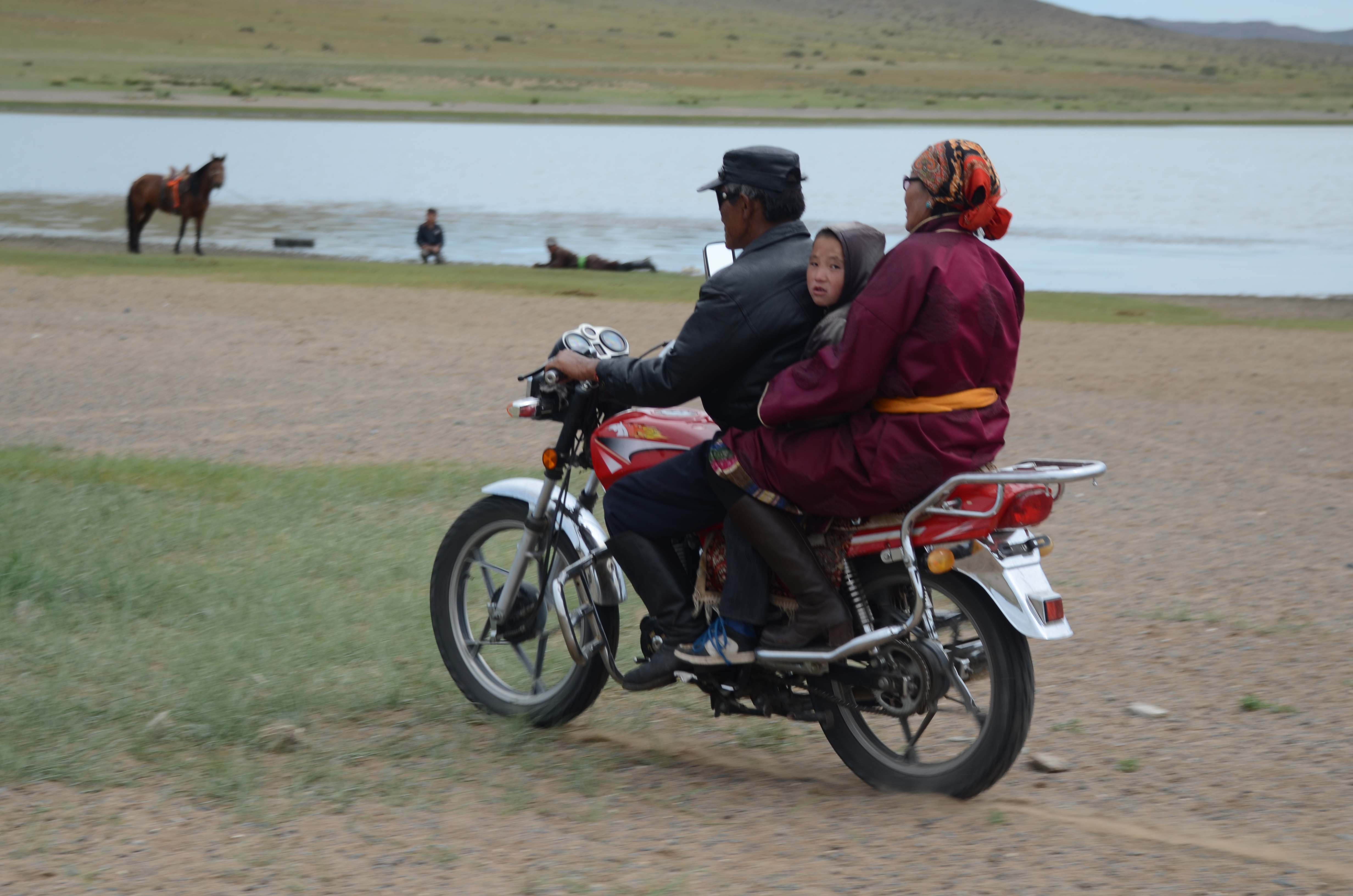
Scott Thomas, Mongolia
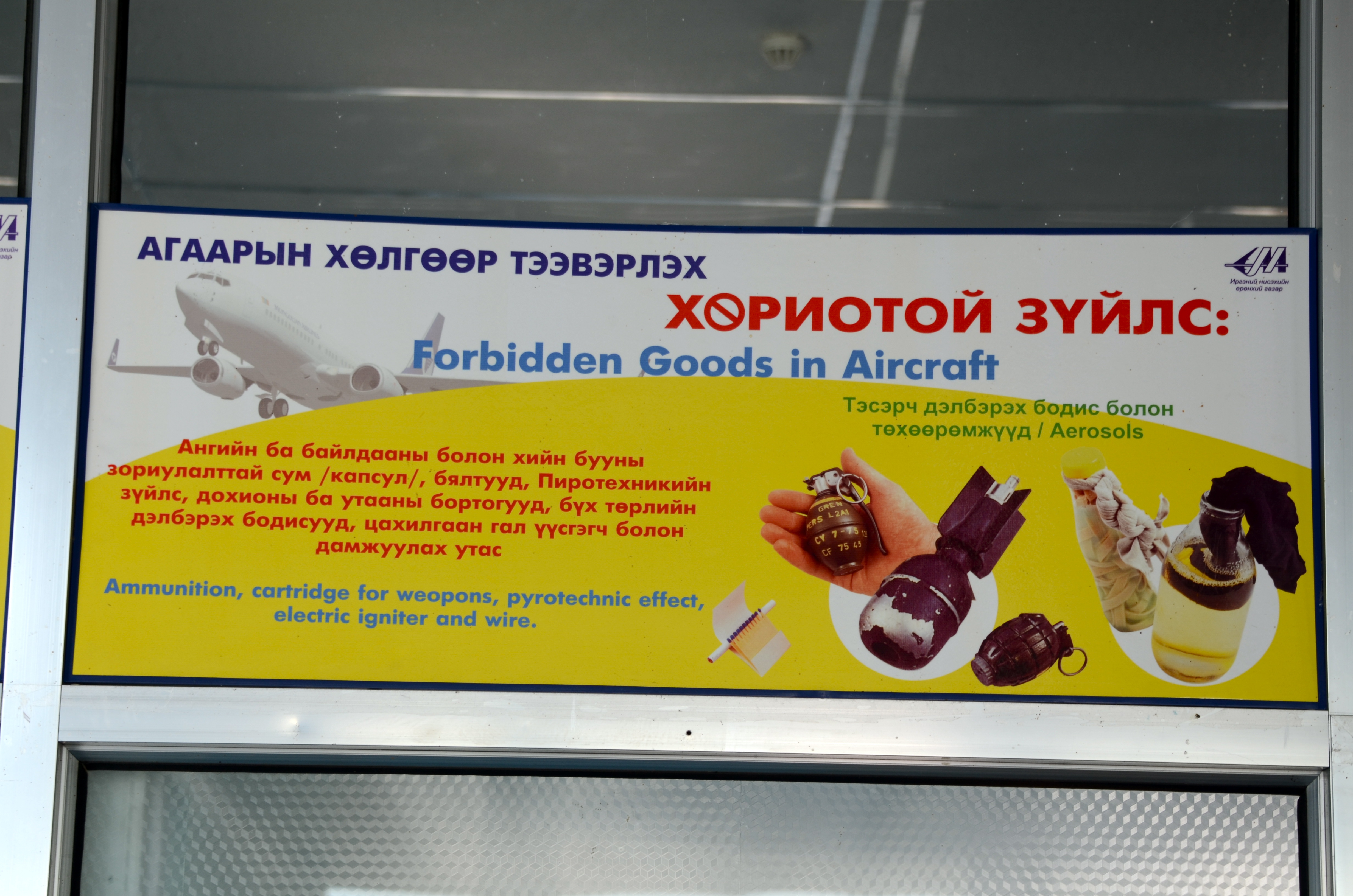
- Scott Thomas - No Matches, No Molotov Cocktails, Mongolia
Artist Bio: Scott Thomas is an American pilot living and working in Mongolia. You can read more about him here: Thomas Air
March 28th, 2012 § Comments Off on Meg Tuite – Featured Writer – Fiction § permalink
Three short stories from this month’s featured fiction writer, Meg Tuite.
On the theme Secret Life
Eleanor’s Eclipse“Friends are over-rated,” mom said to Eleanor. “You are an effusive egret while they are all earwigs. No one can look an eclipse straight in the eye without damaging their eyesight, you know that. Don’t let the eelworms stand in your way.” Mom lit one Kent from the dangling butt of another, poured herself a cup of black coffee. She was still in her nylon nightgown that showed way more than Eleanor cared to see.
Eleanor was holding back tears. She loved mom for her dedication to her kids and the E metaphors. Mom just didn’t get what it was like to live with bad skin in a world engorged with unblemished beauties that surrounded Eleanor day in and day out. Even the dermatologist mom took her to was in on the conspiracy. “Brighten up, sugarplum. Your face looks better than ever. You’re pretty as a picture,” he would say.
Mom would glare at him. She didn’t appreciate clichés, especially when they didn’t even warrant an E. “Just give her the medicine and that blast of your e-radiation.” He put Eleanor under a sunlamp for twenty minutes and then handed mom the prescription for an antibiotic. Mom would put her palm up and chime, “Samples?” The doctor would produce something new from the pharmaceutical companies. Mom would then thank the doctor and we’d be on our way home.
The sixth grade dance was in two days. Eleanor looked at her face in the rear-view mirror of the station wagon. It was always ketchup-red after the sunlamp. She prayed to the gods of make-up and bad lighting to help her make it through that night. She was going with her best friend, Alice. Alice had an astigmatism and thick glasses. They weren’t popular, to say the least. Eleanor won the spelling bees and Alice usually topped Eleanor on their Math scores. They decided they would go to the damn dance together and get it over with.
Ermine walked in to the bathroom and kissed Eleanor on the head. “You are one hot tomato and I mean that after being irradiated.” Eleanor pummeled Ermine as she threw her arms around Eleanor. Ermine whistled and said, “I love you, baby! You are going to be an erotomania at the dance. I mean, they’ll be crawling all over you.”
“Shut-up, you elipsoid-ass!” Eleanor screeched.
Ermine whistled and sashayed out.
Friday night arrived and Eleanor still had a pinkish hue to her skin and the usual whiteheads and assorted bumps covering her visage. The two sisters came through this time. Elva got her Covergirl make-up and layered Eleanor’s face into one even tone instead of splotches. Ermine got the eyeliner out and mascara. Elva worked the cheekbones with blush and lipstick for her lips. When Eleanor squinted her eyes slightly, she actually looked beautiful.
Mom brought out the dress they’d picked out at Handley’s. Eleanor felt special when mom said to the salesgirl, “Endow us with your most enraptured ensemble.” The girl rushed back and forth with size two dresses for Eleanor. “Blue,” mom said. “That’s the one. Emblazons those Robin egg blue eyes.”
Alice’s mom was designated driver and chaperone. Mom got out the camera and snapped photos. “Elongate, girls, elongate,” mom kept saying. She got one or two photos of the two looking somewhere in the vicinity of the camera before she quit. Both girls were snarling by this time.
The dance was in the school gymnasium. It was decorated with tiny white lights, streamers and music was playing. No one was dancing yet, but kids were meandering around in little clusters. Teachers greeted them and parents exclaimed over the girls when they came in. “Oh, look at these beauties. God, can you stand it? I can’t even remember that far back.”
Eleanor rolled her eyes at Alice, grabbed her hand and pulled her away. “I’ve got a secret,” she whispered in Alice’s ear. “Let’s go to the john.” Alice pushed her glasses up on her face and followed Eleanor. There was no one in the bathroom when they got there. Eleanor had a little blue purse around her shoulder that went with her dress. She pushed Alice into one of the stalls, locked the door behind them. Alice kept blinking rapidly. Eleanor put her index finger to her lips to shut Alice up. She opened her little bag and pulled out two tiny bottles of liquor. “I steal these from my mom’s stash,” Eleanor hissed. “One for you and one for me.” Alice was horrified. “I’ve never…” The bathroom door opened and Eleanor covered Alice’s mouth with her hand. Eleanor stood up on the toilet with her new blue slip-ons, crouched down so only one pair of shoes were visible.
“Did you see Dennis?”
“Uh-uh.”
“God, he’s hot. I’m going to french him tonight.”
“Yeah, right. He’s going steady with Crystal, everyone knows that.”
“Just wait and see if I don’t.”
Eleanor and Alice raised their eyelids and smiled at each other. This was the best spot at the dance. When the gossiping girls left, Eleanor took the clear bottle and twisted it open, tearing the paper seal that bound it. She whispered, “explosive experiment,” threw her head back and took a swig out of the little bottle. Her eyes watered and her face scrunched up. “Okay, your turn,” she handed the vodka to Alice.
Alice was pale and shaking.
“Come on, just a sip.”
Alice took the bottle.
“Just clamp your nose shut and do it,” Eleanor said.
Alice pinched her nose and took a quick sip of the alcohol. She started sputtering.
“Give me that,” Eleanor said. She took the bottle, squeezed her nostrils together and sucked the rest of the liquid back. She wanted to throw up, but took a deep breath and didn’t let on that she was pained. “Okay, let’s go.” Eleanor pulled out some Altoids.
They stuck their mouths under the faucets, sucked down water. They dumped a few mints in their mouth. Alice was starting to get color back in her cheeks and when Eleanor looked in the mirror at herself, she thought she looked good. The pimples were a blur.
“Okay, Alice, let’s go dance with these entrails.” Alice giggled as Eleanor smacked her on the butt. They skipped back out into the gymnasium. It was looking much more sparkly than Eleanor had remembered coming in the first time. She saw the boys still in clusters swaying to an “N’Sync” tune. Girls were on the other side whispering and staring at the boys.
Christa Blotter was dancing and swinging to her own tune, didn’t give a damn what anyone thought of her. Eleanor was in awe of that. Eleanor pretended not to care what people said about her or her skin, but she cried sometimes when she was alone in her room. Christa was a warrior. Christa was fat and got made fun of, but she ignored everyone. She was a bulging satin vision in a fuchsia dress with heels. They were at least two inches high which was something, since everyone else was wearing flats. Eleanor was smiling at Christa watching her circle around on the dance floor alone and before she knew it Christa pulled Eleanor out in the middle with her. Eleanor could feel all eyes on her and she waited for that ‘I want to die’ feeling to appear, but it didn’t. Everything felt lighter and she held on to Christa’s hands as they swung each other around laughing and singing together.
Before Eleanor knew it there were other kids dancing around them. Eleanor felt ethereal and full of some kind of love for everyone around her. She planned on stealing more of mom’s vodka whenever she got the chance. It would be her new elixir. She searched the room until she found Dennis dancing with Crystal. They were the two everyone envied. Not anymore.
Eleanor waited for a slow song by “Boys To Men,” to start crooning and then marched across the dance floor. She smiled as Crystal passed her, snarled at her while the boys were moving off to the other side. Eleanor grabbed Dennis by the arm and pulled him around. He was slouched-over-tall and looked like he’d been swigging his own stash. He grimaced at Eleanor, but she threw herself against him, clung to his waist. He started laughing. She was seeing two of him by this time. She felt him pull her in. They danced together and he held her tight. She knew what it meant to swoon now. He leaned into her and she plastered herself against him until the song was over.
It was Alice that dragged Eleanor into the bathroom sometime after that. She held Eleanor’s hair back while she puked in the toilet.
“It was beautiful, Alice, wasn’t it?” Eleanor kept asking.
“Yeah, Eleanor, it was emetically enthralling,” said Alice. She had learned her own E words from spending time at the Edward’s house.
END
_ _ _ _ _ _
On the theme Razor Dance
Red Light
The windshield wiper that slugged back and forth had nothing on the consistent monotony of dad’s endless barrage. His face wore a purple spread of volatile veins, a methodical perversion that blasted with a glowing hue. It either planned to close his arteries into an aneurism or it was going to vaporize me into a bloodless sack of skin that pretended to sometimes have a voice.
“Stop your goddamn sniveling and answer me. You actually think someone’s going to hire you, like this?” He smacked me on the face. Or maybe he didn’t. He grabbed my crotch. Or maybe he didn’t. He smoldered. That I recall.
My mind became a hollow silhouette of itself. It no longer took in any of dad’s jackhammering.
Slap, slap, slap of the wipers attempted to barricade the torrential downpour. I attempted to barricade his downpour, word by word that had its own beat. My eyes were slits, my face swollen. I held my pathetic resume in my hands.
A stop light. Inside the brain. Space took over and blanketed those lost moments or minutes or hours, suspended them. It was that time between a red light and a green light when all of life held its breath and there was no remembrance left in its wake.
I never made it to the interview. My dad was insistent on taking me. It was a colleague of his. I didn’t said no. Inside myself the voice said, Are you fucking crazy? As I slid into the passenger seat. I never said no.
Somewhere along the way my dad dropped me off. I remember standing in an alley below my mom’s apartment with water weeping down on me.
My mom and sisters said, You’ve been gone five hours. Where did you go if you didn’t go to the interview?
What the hell happened to you, my mom asked over and over.
She put compresses on my forehead and begged me. She was a mother I’d never known. She was vigilant, protective, one of those saints that suddenly shows up on a bagel.
Only the windshield wipers and the crescendo of his rage haunted me. The more I cried, the more explosive his volcano became. I saw rain. I heard rhythmic pummeling on the roof of the car. The rest was a black out.
My mind took the fuse that was blown and supplemented it with another one. Somebody took my place. Who was she? How did she make it through that ride home through traffic, stoplights, the bad bridgework of his wrath.
My mom and sisters shook me. You spent three days crying in bed, never said a word.
I lay in bed coming in and out of consciousness. Was I hit? My face was purple and swollen from the downpour. Was I raped? Something deep and toxic had shorn me.
Three days later I came back to some place called now. I ate again, I smiled, I listened.
My sisters hugged me and lit cigarettes for me in their room. They braided my hair and talked about school, boys. They mimicked the girls who talked like babies.
Oh, Jimmy, pease, pease, I luf you. Hug me, oh baby, baby… the bitch sobbed in his arms like some creepy wind-up doll, they said.
I snickered. I detested those girls.
My mom put me to bed that night. I love you baby, she said.
I lay in bed alone. I put my hand inside my pajama bottoms. I didn’t feel anything. I started wailing, rolling from side to side.
You are just another Barbie doll without any apparatus, I hissed to myself. They don’t have any hair down there.
Get on with it, I said. I crawled out of bed and into the bathroom. I found a bag of plastic razors. I took one out.
I lathered up the foam, started to sob again like the baby I was.
END
_ _ _ _
On the theme of Cheese
Dairy Farm Distortion to the PsycheField trip to a dairy farm was not a child’s best friend. Unrestrained stories of milk storage in animal stomachs, molded into cheese. They called it an accident. Hell yes, it was a hideous accident. It was worse than a car crash. Some kind of whack job who must have been starving said “Oh, yeah, that is a malted milkball, a Butterfinger, I have to stuff that curd growing inside a dead animal’s stomach into my mouth.” The mold, bacteria and butterfat bombarded about in the kid’s head as she tried to eat the Kraft cheese sandwich with bologna her mom had made her that day. Language came. It was an assault. Coagulation, rennet, pasteurized, fat, nomadic tribes and more despicable fat.
They had samples of different cheeses at the end of the tour. Chunks of fluorescent orange and off-white cheese with toothpicks stabbed into them were like some kind of landmark she never wanted to reach. After staring at the asses of cows and the smell of their shit coming out, an ongoing parade, lined up in stalls with their teats, as they called them, stuffed into metal contraptions, entombed into sedentary slavery to produce the milk that would coagulate and acidify into something solid, depraved and never ending.
All the white trash kids loved it. They smiled and shoved as many samples as they could in their traps of cheeses shrouded in a history of deceit and bacteria. It was a camouflage of herbs, spices and woodsmoke that kept them as far from the Egyptian tombs as a double-wide trailer to a homespun meal.
She told the teacher she wasn’t feeling so hot. She vomited outside the bus for a while and then got on and waited for the cattle in uniforms to join her. Cows had lost there charming spots and precious faces. They were now suppliers of rancid, parasitic lumps.
When she got home her mom was cooking something with cheese on top. She tried to educate. She explained that it was lethal, came from doomed, filthy beasts sluggish in mud. Her mom laughed and set up the tuna melt sandwiches for dinner. The girl said she wouldn’t eat them and stormed out. Her mom fed the rest of the family and let the girl stew up in her room. The girl was hungry.
She snuck down after everyone was asleep, sat on the floor in front of the refrigerator, unwrapped each Kraft cheese slice as quietly as she could and stuffed it in to her mouth. It was waxy, cold and smooth. She didn’t let images of cows or mold, rennets or bacteria distort her unrestrained gratification.
END
Author Biography:
Meg Tuite’s writing has appeared in numerous journals including Berkeley Fiction Review, 34th Parallel, Epiphany, One, the Journal,
Monkeybicycle and Boston Literary Magazine. She is the fiction editor of The Santa Fe Literary Review and Connotation Press.
Her novel Domestic Apparition (2011) is available through San Francisco Bay Press and her chapbook, Disparate Pathos, is available (2012) through Monkey Puzzle Press.
She has a monthly column, Exquisite Quartet, published up at Used Furniture Review. The Exquisite Quartet Anthology-2011 is available.
March 14th, 2012 § Comments Off on Bjorn Wahlstrom § permalink
Bjorn Wahlstrom on the Theme of Democracy
“The last butterfly in Shanghai just landed on my leg.”

Bjorn Wahlstrom on the theme of Democracy

Bjorn Wahlstrom on the theme of Democracy
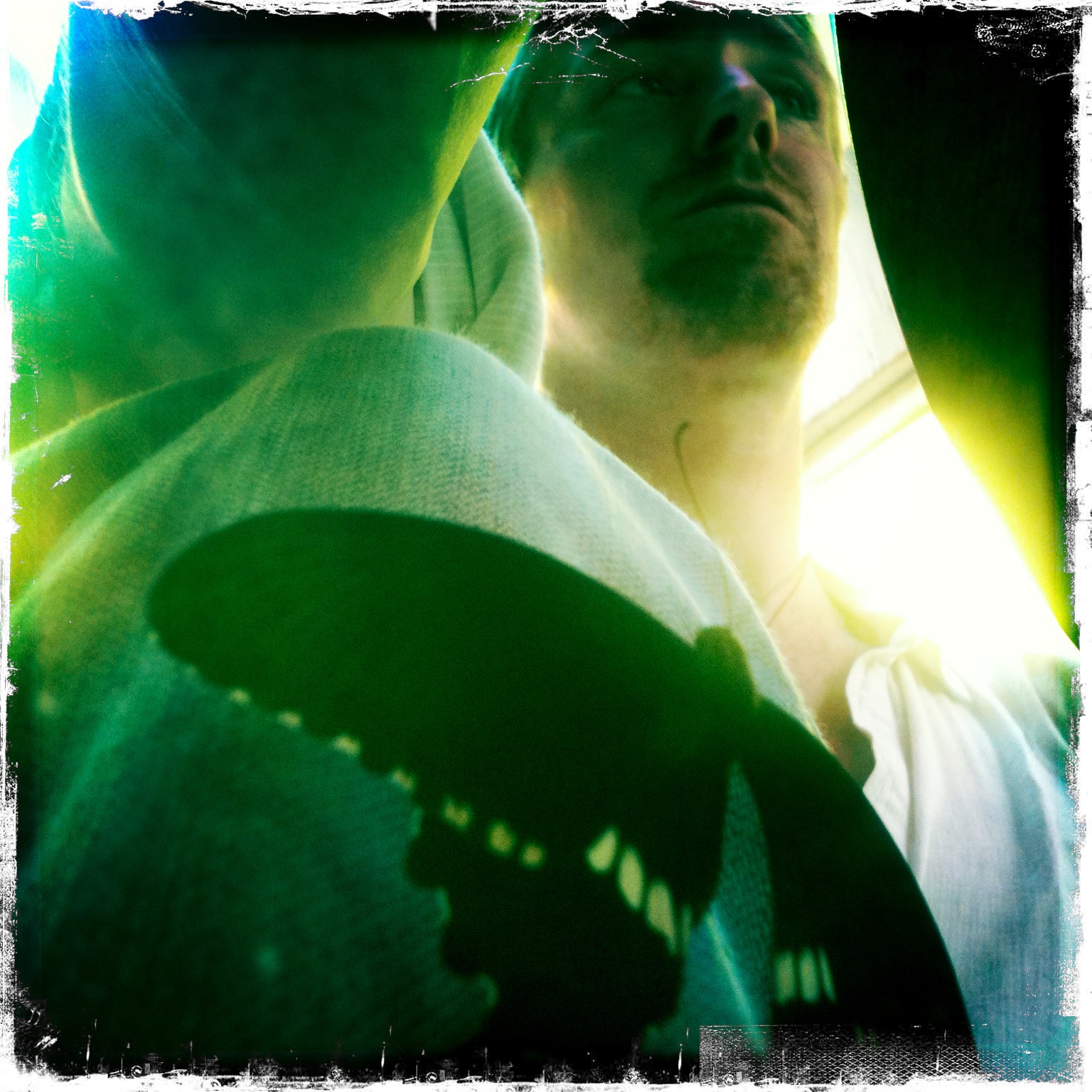
Bjorn Wahlstrom on the theme of Democracy
Author Biography –
Bjorn Wahlstrom owns HAL Publishing, Shanghai’s independent English language press. He was born in Sweden. His photography appeared in the June 2011 issue of Unshod Quills and again in September.
www.haliterature.com
March 14th, 2012 § Comments Off on Jessica Swenson § permalink
on the theme of secret life
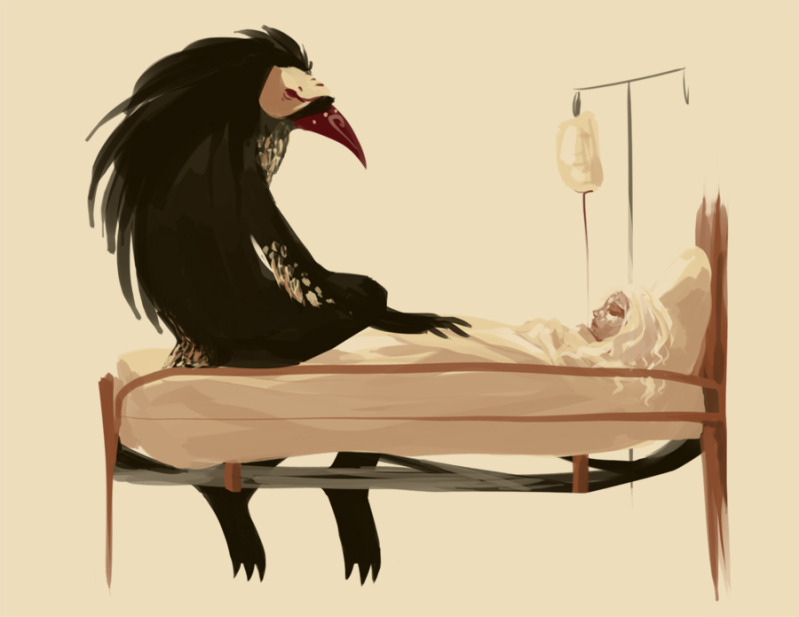
"Fear" on the theme of secret life
Artist Biography
Jessica Swenson graduated from Texas State University. She works in freelance digital painting. Her online portfolio can be viewed at:http://cloven.carbonmade.com/
March 14th, 2012 § Comments Off on Gregory Crosby § permalink
Gregory Crosby on the theme of Las Vegas
Bridge of Sighs
And as I stepped into the gondola that would carry me into my life, the gondolier began his clockwork aria (paid by the hour). The Grand Canal, chlorinated. Other brides, other grooms, swarming, yellowjackets washed out in Venetian fluorescence. Laughed, how could we not? Below, under, a world, doubling, down, Our Most Siren Republic. Las Vegas, Venezia: impossible, surrounded. One sinks, another rises. Above or below, in a Roman tub or green-felt dungeon: a Magi couple exchanging their ten thousandth bitter line. But we, gifted, drifted, serenaded by a striped shirt (what dreams, deferred). We were different. The lucky sort, the players, playing. Vowed, kissed, before our sets, parents (dubious), before, lidless, the black teardropped-eyes of God (whose art, in wedding-cake heavens).Vowed, kissed, before Fortuna’s Paycheck Wheel: wedded to this, floating, in the floating world of men, made. Whispered nothings, sweet I guess (who can tell?) as the sky turned blue-in-the-face, smooth, plastered. Moving forward, upward, onward, baby, the sky’s the, uh, limit (right where the contractors put it). Brands, winked, shops, worn, & shoppers’ babble against our song, echoing, echoing.
We could have been the last couple on Earth, but we were not. On earth. Streets full of water—please advise.
Still, we, different (did I mention?). Beneath a shadow, weak, the final bridge (just before cigars, high-end handbags, cruel shoes): the gondolier’s voice faltered, vincero! swallowed, a cough, as if a bug swooned, downward (what possible fly in that climate, controlled?) Looked up, she and I (yes, she was there too—what’s a wedding without a bride?). He laughed, recovered, picked up where the song left off. We laughed—how could we, could we not—as he delivered us (at last, at last, that damned photographer, waiting, paid by the hour) to that piazza, conditioned by air, terror. To the very hour, executed, (we two! at last! O angel! O hour!) of departure.
___________
Fremont
I am lucky. On iTunes, Armstrong solos
on “West End Blues,” still breathing, still dead,
here at the Four Queens, Room 909.
I am one after. Still breathing, not dead.
I am happiest when I play the blues.
My blues light as black patent, not matte.
Shining like vinyl, deep in the grooves.
The gentleman at the shoeshine stand
at the Golden Nugget slips playing cards
into my shoes to keep the black at bay.
I am polished. I am lucky. I was just born
this way. He’s a different shoeshiner
from yesterday but just the same.
The light moves like a little pale moon
across his dark pate. We are both bald;
we shine on all right. Instant coffee’s
going to get you, so I’ll wait. Later,
I’ll walk to the Golden Gate for breakfast.
Walking on sunshine, painted black.
I am back, and I am lucky. I know
it takes twenty-one not twenty
to appease the gods of Megabucks.
One spin changes your life. I am spinning
every day. Watch my hands for the changes.
Sun moon star shine. I wonder which cards
like dry little tongues are snug beside my
dark socks. Perhaps I am flush.
The Devil peeks out from my socks
in a pattern of red. His tongue is hanging
out. There’s a halo around his pitchfork,
he’s been shoveling it all the live long day.
What’s the Devil anyway but a blues,
a worksong, chorus upon chorus. I am lucky,
what can I say. That’s why they call me shine.
Pops shined on Nixon when asked to play
the White House. Fuck ‘em, growled Pops
(you can hear it on the tapes, all that Satchmo
had in common with Tricky Dick). Pops
didn’t give a shit what you might say.
That’s how the blues is played, smiling
all the way. Don’t let anybody tell you
what to play. Somebody will still pay.
I am still breathing, still paying.
I am lucky, I am full of blues.
The blacks I polish and wear out.
At breakfast, the short order cook,
his own shaved brown pate bobbing
along to the tune of a golden earring,
starts to sing Let it snow, let it snow, let it snow.
Yes. Let it. Outside, I am frightful.
Inside, the fire is so, just so. I am
banked but I glow. In the casino,
Cheap Trick sings Surrender, surrender.
But don’t give yourself away.
Yes. I’m just lucky that way.
______________
Lewis Avenue
Everything fades except its representation.
I’m a river of gin flowing in search of a still, sour ocean of tonic.
Someone is asleep on the long shot.
The homeless are secure in their homeland.
I am so far from home that I am home.
Wherever my hat is, is (that’s why I wear it).
Across the way, the Duke in his fur collar breaks the spine of a paperback.
The Patriot beneath his star-spangled bandanna cradles a burning Parliament.
St. Jerome annotates his Bible in between sips from forty days, forty nights.
In stained red sweatpants, the Wandering Jew holds forth his coffee cup, as if in search
of the Wandering Waitress.
Salieri contorts his nut-brown face and conducts his crushed can oratorio.
Virginia Dare draws her knees to her chin, huddled against the chill of sunlight.
In the stone’s throw, the bankrupts sort their failures, vendors setting out their wares.
The parade passes in honor of suits, sack lunches.
Here and there, a silent messenger.
The courthouse is a miracle.
I am down to a sunless sea. I am calm, and out of order.
Yes, and you’re out of order, and you’re out of order.
We’re all out of order.
Who else did they think would sit here when they built it?
Every waiting room is painted robin’s egg blue.
Have you ever seen a robin’s egg?
You’ll have to take my word for it.
It’s the middle of the day.
It’s home.
Here comes the judge.
_______________________
Charleston Underpass
Everyone avoids it in a heavy rain; it floods in a flash.
But even when bone dry, you still dive, driving beneath it to break
the surface of the Union Pacific rails; rising now, windows down,
on a late moon-baked night, some July twenty years in the past,
to smell the newly baked bread from the Holsum Bakery,
its neon clock proclaiming the middle of the night is now
… Hours fresher. The scent in that ellipsis, that pause
as you turn your eyes to the left, the fresher flooding
you in a flash, the miracle of the loaves that whips
around your nose and eyes and recedes like the flood
as you pass. It would be worth it, every night of
your benighted life, to stay up this late, to take
this drive, to surface like a drowning man
who didn’t know he was drowning.
The bakery is gone, but they saved the sign.
Everything is gone, but they save the signs,
though, sometimes, the signs too are gone,
and there’s nothing but dark water
where the road bows to the world.
_________________
Sig(n)nature
For Jerry Misko
The haunted house always wins.
Foxy’s Firehouse burns,
always up, never down.
Gone with the rest, those words
like pasties twirling in the dark,
come-ons sans their referents.
Frontiers of dunes, sand, dust.
She’s got neon in her veins.
Strikes her poses, & holds ‘em.
He shutters. His hands do not
tremble at the glow, empty,
refulgent, that spells it out,
giggling, beautiful, blank:
sign here… here… here…
here. Dyer’s hand, dyeing.
Signifier, re-signing.
Author Biography
Gregory Crosby’s work has previously appeared or is forthcoming in Court Green, Copper Nickel, Paradigm, Rattle, Poem, Jacket, Pearl, [sic], and The South Carolina Review. He is a recent winner of the Marie Ponsot Poetry Prize.



















